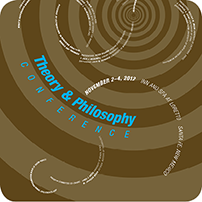A Behavioral Interpretation of Knowledge

Dave Palmer (Smith College)

Dave Palmer discovered B. F. Skinner by reading Walden Two while on a cave-exploring trip to North Carolina because he thought it must have had something to do with his hero, Henry David Thoreau. He spent the next decade on a soap box preaching about Walden Two and reading the rest of the Skinner canon. Eventually, he realized he was no Frazier, and he applied to graduate school in behavior analysis studying under John Donahoe. He was happy in grad school and would be there still if the University of Massachusetts had not threatened to change the locks. He spent the past 21 years as the token behaviorist at Smith College in Northampton, MA. During that time, he co-authored, with Donahoe, Learning and Complex Behavior. He continues to puzzle about the interpretation of memory, problem-solving, and-particularly-verbal behavior. He once referred to himself-in a jocular vein-as a goose-stepping Skinnerian, but he found that the label fit and now wears it without apology.
Abstract: Nature has stumbled on the power of permutations in several domains, such as the composition of molecules, the codifying of genes, and the synthesis of proteins. Human behavior is distinctive in that verbal behavior facilitates "directed permutations" of elementary behavioral units analogous to the stringing together of amino acids under the control of RNA codons. The tacting of behavioral atoms following reinforcement, in the presence of an audience with a suitable atomic repertoire, permits the rapid transmission of adaptive behavior throughout a verbal community, and short-circuits the alternative process of shaping. In contrast, problem solving entails the marshaling of supplementary stimuli to generate novel permutations in behavior, only some of which might be captured by contingencies of reinforcement. When reinforced, behavior becomes the source of directed permutations. Such variation, in the first instance, is always blind, but it can become directed variation, as when "strategies" are explicitly inculcated. Knowledge, then, always arises from chance variation, possibly during long periods of time and highly uncertain of success, but once successful becomes rapidly transmitted as directed permutations of behavior. However, in the latter case, we ordinarily speak of "knowledge" only when control of the behavior has transferred to other variables.